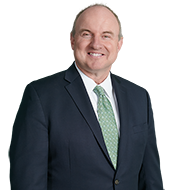COVID-19: Massachusetts Adopts a Four-Phase Approach to Reopening Businesses
On May 18, 2020, Massachusetts Governor Charles D. Baker announced a four-phase reopening plan that outlines protocols for the resumption of businesses, services, and activities across Massachusetts. Each phase is expected to last at least three weeks, but that timeline could change if public health trends indicate significant increase in COVID-19 transmission. In making the decision about whether to move to the next phase, the governor will focus on public health data, including the COVID-19 positive test rate, the number of COVID-19 deaths, the hospitalization rate, the readiness of the Massachusetts healthcare system, and testing and contact tracing capabilities. While the phased reopening plan affords businesses the opportunity to reopen, reopening is not required. Further, businesses that reopen are subject to restrictions and must implement mandatory safety standards aimed at decreasing the spread of the virus.
Under Phase 1 of the reopening plan, the “Start” phase, effective May 18, 2020, places of worship, as well as manufacturing and construction businesses are able to resume operations. In addition, hospitals and community health centers are permitted to begin providing high priority preventative care, pediatric care, and treatment for high-risk patients, subject to certain restrictions. On May 25, 2020, the following businesses also can re-open with restrictions:
- Laboratory and life science facilities;
- Offices not located in the City of Boston (offices located in the City of Boston may resume June 1, 2020);
- Hair salons and barbershops by appointment only;
- Pet grooming by appointment only (curbside pet drop-off and pick up);
- Car washes for exterior car washing;
- Retail for remote fulfilment and curbside pickup;
- Recreation and outdoor activities, including beaches, parks, drive-in theaters, and some athletic fields and courts; most fishing, hunting, and boating; outdoor gardens, zoos, reserves, and public installations; and
- Other healthcare providers that provide high priority preventative care, pediatric care, and treatment for high-risk patients.
All business permitted to reopen under Phase 1 of the reopening plan must abide by the Massachusetts Department of Public Health’s Mandatory Workplace Safety Standards and any applicable sector-specific protocols developed by the Reopening Advisory Board. Notably, essential businesses that have remained open during the pandemic have until May 25, 2020 to comply with the same applicable standards and protocols.
The Mandatory Workplace Safety Standards, available here, and sector-specific protocols for construction, manufacturing, office spaces, laboratories, hair salons and barbershops, car washes, pet grooming, and places of worship, available here, focus on social distancing, hygiene, staffing and operations, and cleaning and disinfecting. For example, businesses must:
- Establish protocols to ensure that employees and customers maintain social distancing, including by reconfiguring worker common spaces and high-density areas where workers are likely to congregate, redesigning work spaces, staggering work schedules and break times, and regulating the number of people in one place;
- Limit occupancy within office space to no more than 25 percent of (a) the maximum occupancy level specified in a certificate of occupancy or similar permit or as provided for under the state building code, or (b) the business’s typical occupancy as of 1 March 2020;
- Require face coverings or masks for all employees;
- Regularly sanitize and disinfect high-touch areas, including screens, doorknobs, restrooms, equipment, and workstations;
- Ensure frequent hand washing by employees;
- Have employees who are displaying COVID-19 symptoms not come into work;
- Certify that they have a “Written COVID-19 Control Plan” that addresses the various conditions set forth in the Mandatory Workplace Safety Standards (state-provided template available here); and
- Display worker safety posters regarding the new safety standards (state-provided posters available here and here).
Finally, a customer-facing business must display signage, available here, in a place visible to workers and visitors that attests to the business’s compliance with the Commonwealth’s reopening requirements.
Once Phase 1 of reopening is successfully completed, Massachusetts will move to Phase 2, the “Cautious” phase, which will enable retail businesses, restaurants, lodging, and additional personal services, such as nail salons and day spas to open. Additionally, health services for less urgent procedures and care, day health programs, and more outdoor and recreational activities may resume operations. In Phase 3, the “Vigilant” phase, bars, arts and entertainment, including casinos and museums, and all other business activities, except for nightclubs and large venues, may reopen. Finally, in Phase 4, the “New Normal” phase, all remaining activities will be allowed to proceed. Services and activities that resume and businesses that reopen in each phase will be required to adopt minimum safety standards established by the Commonwealth.
K&L Gates is advising clients on the parameters of the reopening plan and is well-prepared to assist businesses as they navigate operations or seek clarifying guidance. More information about K&L Gates’ COVID-19 work is available here on K&L Gates HUB.
This publication/newsletter is for informational purposes and does not contain or convey legal advice. The information herein should not be used or relied upon in regard to any particular facts or circumstances without first consulting a lawyer. Any views expressed herein are those of the author(s) and not necessarily those of the law firm's clients.






